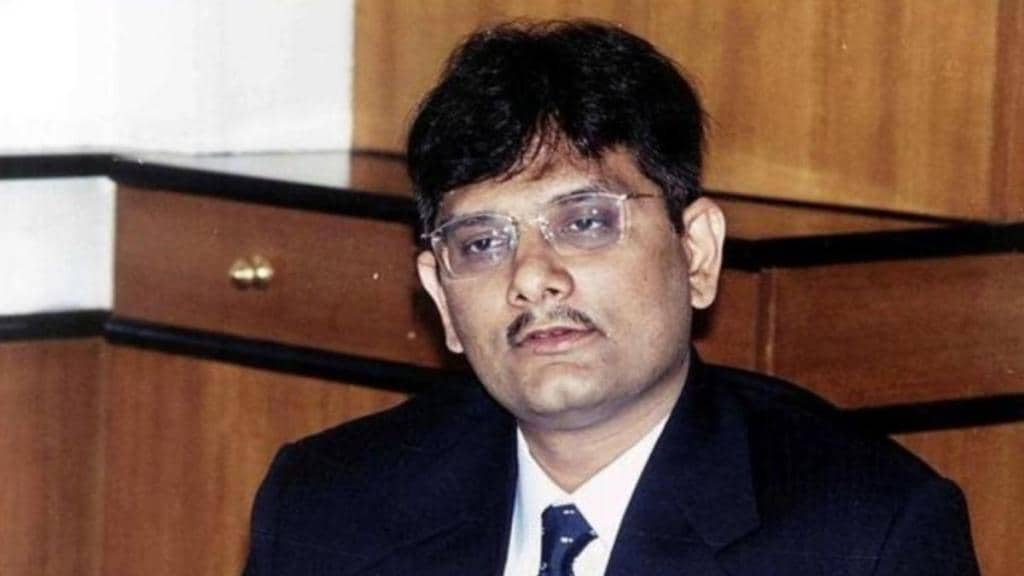Old habits die hard, and Ketan Parekh seems intent on proving that he is the poster boy of that phrase. For the ‘Pentafour bull’, who was convicted in a stock market scam over two decades ago, stock market manipulation is an addiction he just can’t give up.
In less than a decade after his 2003-2017 ban from the stock market ended, Parekh met the same fate again last week — this time for front-running.
Even in these two decades since his first debarment, his brush with the law has continued. Parekh allegedly remained active in market manipulation, operating through proxies and front accounts, which led to trading bans for 26 entities in 2009. In 2020, his name surfaced yet again in connection with a fresh rigging scandal, but he was eventually convicted in 2023 for duping an investor of Rs 2 crore with the help of a female associate.
Parekh’s first shot at infamy was in the late 1990s — almost a decade after big bull Harshad Mehta’s broker-banker-promoter nexus had eroded investor confidence in the stock market. The timing was perfect too. The dot-com boom was raging, and Parekh replicated Mehta’s model to drive up stock prices.
His K-10 stocks, including names like Pentamedia Graphics, Global Tele-Systems, and HFCL, were much sought after by fellow brokers and investors. Stock prices of scrips like Visualsoft rose from Rs 625 to Rs 8,448 per share and Sonata Software from Rs 90 to Rs 2,150.
Parekh controlled the entire show from behind the scenes using benami accounts, proxy traders, and loans from various banks, to orchestrate a huge pump and dump scheme.
He generated artificial demand for these K-10 stocks through circular trading, wherein he along with his team executed similar sell orders in the same price in the same number at the same time which spiked trading volumes. Gullible retail investors rushed to invest in these stocks seeing the pumped up demand in hopes of windfall gains, but little did they know that they were falling into a trap.
But then the dot-com bust came at the beginning of 2001, and the bear cartel began hammering his favourite stocks. The sharp drop in the shares’ valuations prompted banks, who were holding these stocks as pledges, to call in for more securities and repayment of loans.
Parekh’s most infamous association was with Madhavpura Mercantile Cooperative Bank (MMCB), from which he borrowed nearly Rs 800 crore to fund his market operations, using inflated stock prices as collateral. After the crash, MMCB was left clutching worthless shares, triggering a financial crisis, followed by a payment crisis at major exchanges.
As the market turbulence coincided with the Budget session of 2001, the government was pressured to look into the crash, and subsequently a probe was initiated by the Securities and Exchange Board of India (Sebi) and a joint parliamentary committee into Parekh’s dealings. Consequently, he was jailed.
Investigations revealed that this wasn’t Parekh’s first crime — he was also involved in the Canbank Mutual Fund scam of 1992, wherein various entities had siphoned off Rs 47 crore.
Interestingly, despite working with Mehta in GrowMore Investment, Parekh had initially came out of the scam relatively unscathed. His low profile in the first few years was completely in contrast with Mehta’s lifestyle.
But then, his famous Millennium bash in 2000, which attracted film stars, software czars and even diamond merchants, put him in focus. The rest is history.
This time, he is accused of collaborating with Rohit Salgaocar, a Singapore-based Indian descent, for exploiting insider information related to trades by a major US-based fund house for illegal profits. In its interim order, the regulator has debarred the two along with 20 others, as well as impounded Rs 65.77 crore in wrongful gains.
That Parekh still manages to capture the investing community’s imagination — Salgaonkar being the latest case — is a telling story about the dark side of Indian stock markets. But it is also sad commentary on the regulations. In the US, former Nasdaq chairman Bernie Madoff was arrested within a day after his Ponzi scheme was reported by his sons in January 2009. In less than six months, he was handed a 150-year sentence. In India, Parekh continues to find new ways to manipulate markets.

